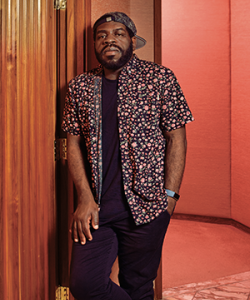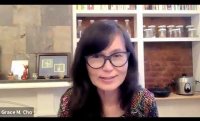Embrace sweater weather by curling up indoors and preparing to submit to one of the following writing contests, which all close on October 31. Opportunities abound for writers in all disciplines, but especially poets. Among the poetry awards are two chapbook prizes and a prize for a female translator who has translated a collection by a female poet. All contests offer a cash prize of $1,000 or more.
American Poetry Review Honickman First Book Prize: A prize of $3,000 and publication by American Poetry Review is given annually for a first poetry collection. The winning book will be distributed by Copper Canyon Press through Consortium. Jericho Brown will judge. Entry fee: $25.
Cloudbank Books Vern Rutsala Book Prize: A prize of $1,000 and publication by Cloudbank Books is given annually for a collection of poetry, flash fiction, or a combination of the two. Doug Ramspeck will judge. Entry fee: $25.
Conduit Books & Ephemera Minds on Fire Open Book Prize: A prize of $1,500, publication by Conduit Books & Ephemera, and 30 author copies is given annually for a book of poetry. The editors will judge. Entry fee: $25.
Elixir Press Poetry Award: A prize of $2,000 and publication by Elixir Press is given annually for a poetry collection. Esther Lee will judge. All entries are considered for publication. Entry fee: $30.
Finishing Line Press Open Chapbook Competition: A prize of $1,500 and publication by Finishing Line Press is given annually for a poetry chapbook. All entries are considered for publication. Entry fee: $15.
Hidden River Arts Tamaqua Award: A prize of $1,000 and publication by Hidden River Press is given annually for an essay collection. Entry fee: $20.
PEN/Faulkner Foundation Award for Fiction: A prize of $15,000 is given annually for a book of fiction published during the current year. Four finalists will each receive $5,000. The winner and finalists will also be invited to read in Washington, D.C., in May 2022. Entry fee: none.
Persea Books Lexi Rudnitsky First Book Prize: A prize of $1,000 and publication by Persea Books is given annually for a first poetry collection by a writer who identifies as a woman and who is currently living in the United States. The winner also receives an optional six-week, all-expenses paid residency at the Civitella Ranieri Center in Umbria, Italy. Entry fee: $30.
Poetry Society of the United Kingdom National Poetry Competition: A prize of £5,000 (approximately $7,075) and publication on the Poetry Society of the United Kingdom website is given annually for a single poem. A second-place prize of £2,000 (approximately $2,830) and a third-place prize of £1,000 (approximately $1,415) are also given. The winners will also be published in Poetry Review. Poems written in English by poets from any country are eligible. Fiona Benson, David Constantine, and Rachel Long will judge. Entry fee: £7 (approximately $10).
Red Hen Press Benjamin Saltman Poetry Award: A prize of $3,000 and publication by Red Hen Press is given annually for a poetry collection. Major Jackson will judge. Entry fee: $25.
River Teeth Book Contest: A prize of $1,000 and publication by University of New Mexico Press is given annually for a book of creative nonfiction. Rigoberto González will judge. Entry fee: $27 (includes subscription).
Saturnalia Books Malinda A. Markham Translation Prize: A prize of $2,000 and publication by Saturnalia Books will be given annually for a translation of a poetry collection. Translators who identify as female (including those who are assigned-female-at-birth [AFAB] nonbinary, genderfluid, agender, and intersex) and who are translating the work of a woman poet (including those who are AFAB nonbinary, genderfluid, agender, and intersex) are eligible. Entry fee: $25.
Tucson Festival of Books Literary Awards: Three prizes of $1,000 each are given annually for works of poetry, fiction, and creative nonfiction. The winners will also receive scholarships to attend a workshop on the University of Arizona campus in March 2022. Entry fee: $20.
Tupelo Press Sunken Garden Chapbook Poetry Prize: A prize of $1,000, publication by Tupelo Press, and 25 author copies is given annually for a poetry chapbook. Entry fee: $25.
University of North Texas Press Vassar Miller Prize: A prize of $1,000 and publication by University of North Texas Press is given annually for a poetry collection. Entry fee: $25.
Visit the contest websites for complete guidelines, and check out the Grants & Awards database and Submission Calendar for more contests in poetry, fiction, and creative nonfiction.








